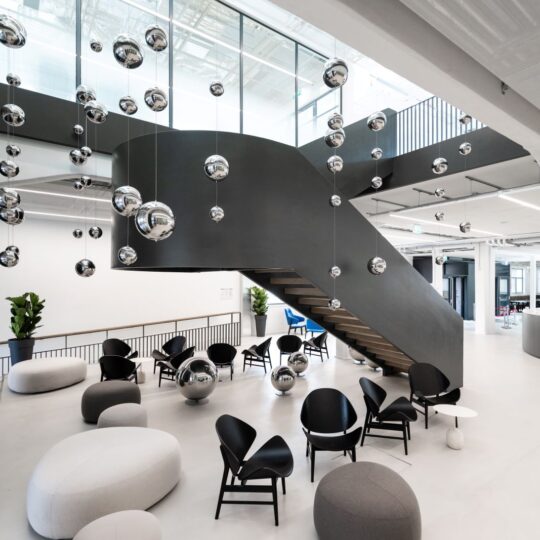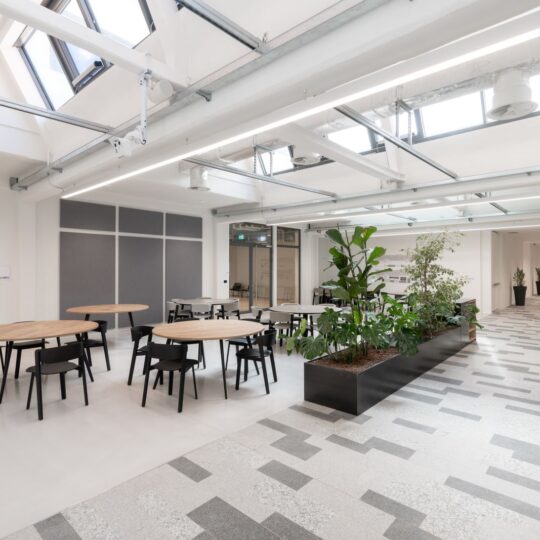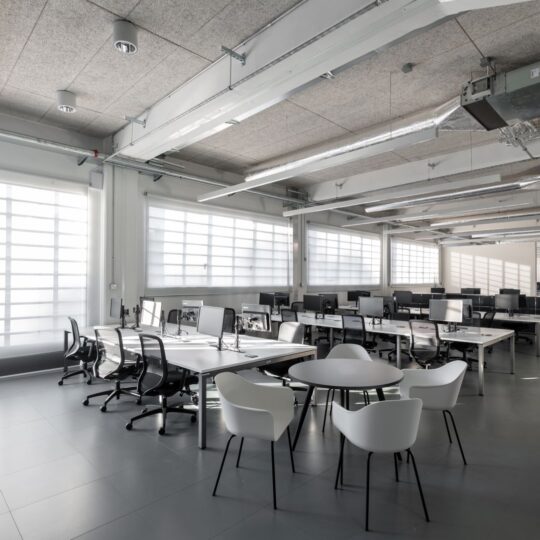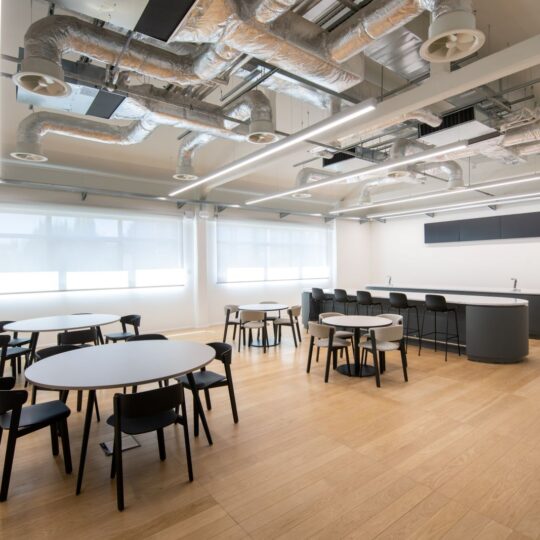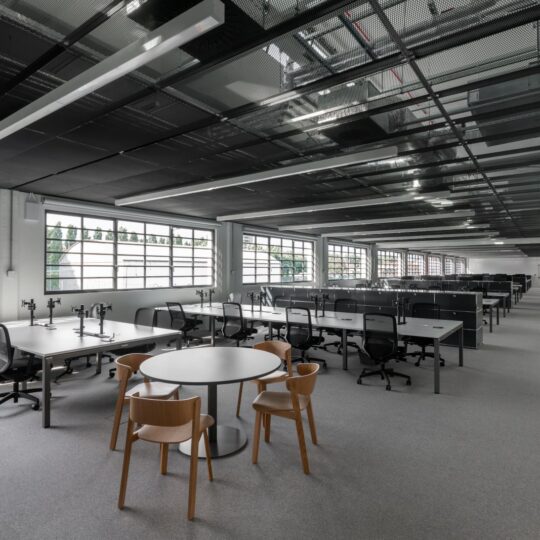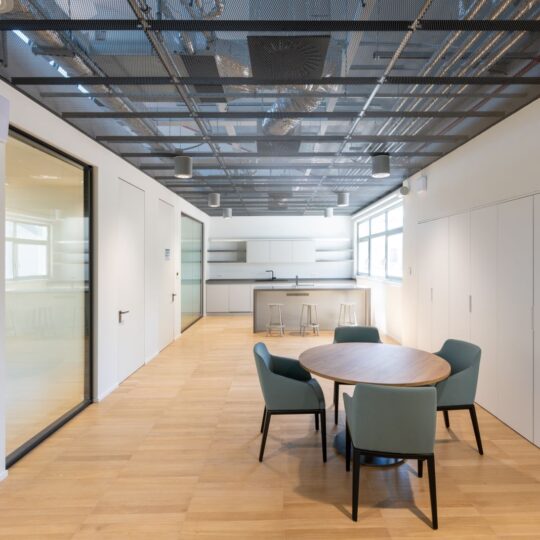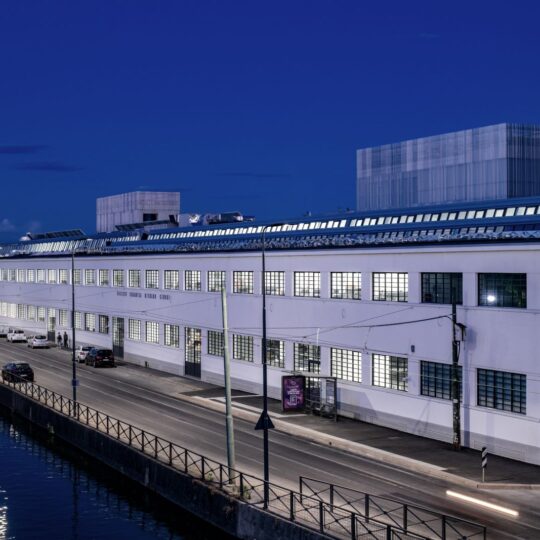The urban redevelopment project of the new hub of communication and marketing born in Milan, in the spaces of the former Richard Ginori industrial complex, involves more than 20,000 square metres completely redesigned while maintaining the original structure and characteristic layout of the former production plant.
The Via Ludovico il Moro complex, designed by BDG in collaboration with Italian firm 967 Arch, plays on neutral tones, using predominantly white to recall the façade of the time, and is marked by typical horizontal wrought iron windows and original 20th century columns, which give rhythm to the open space work areas, common spaces and services.
In this context, the Nesite raised floors, for a total of 12,000 square metres, are customised through the use of different covering materials: firstly rubber, in a solid colour and 2mm thick, visually differentiates the common areas from the large work spaces, with porcelain stoneware in 60×60 cm panels and 50×50 cm carpet, with excellent soundproofing properties and ideal for open space situations.
Parquet, on the other hand, defines the executive areas, with 60×60 cm and 60×120 cm panels with seven individually bevelled staves. The parquet is FSC®-certified and its surface is treated with an ecological oil varnish that preserves the wood’s natural appearance while making it resistant to abrasion and wear.
In addition, the calcium sulphate core, also used for the supply of 8,000 square metres of panels in Tower C, guarantees excellent acoustic and walking comfort, load capacity, thermal insulation and fire resistance (60 minutes in class A1), which are necessary and indispensable in high traffic situations such as offices.
The complex is conceived to obtain BREEAM certification: it is paper less and plastic free, designed to reduce polluting emissions and the consumption of water and energy, using 100% renewable energy sources.
This concept perfectly meets Nesite’s ability to use certified, sustainable, recycled and recyclable materials for the production of its raised floors, with constant attention to safeguarding environmental resources.


